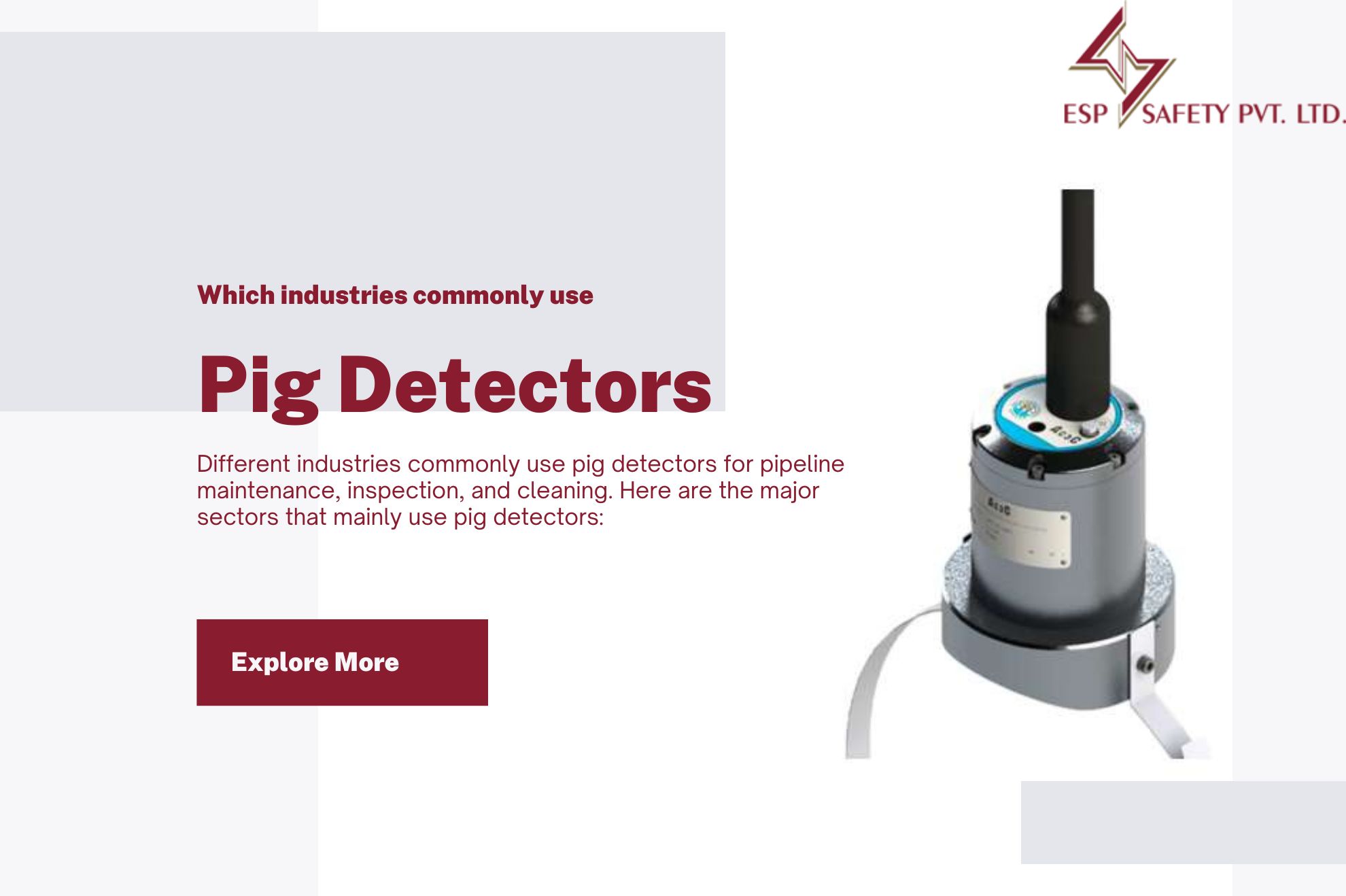
In the pipeline industry, pipeline inspectors frequently use Pipeline Inspection Gauges (PIGs). Pipeline activists use important devices, referred to as pig detectors, to monitor and identify the movement of pipeline pigs. These gadgets are essential for the proper upkeep and running of pipelines. During a pigging operation, use a pig detector to detect the presence of a pig in the pipeline. The pig detector’s LED light indicator alerts the operators when the pig is located on the pipeline’s exterior. Different types of pigs and industries commonly use pig detectors, such as oil and gas, the chemical industry, and others.
Different industries commonly use pig detectors for pipeline maintenance, inspection, and cleaning. Here are the major sectors that mainly use pig detectors:
In extracting and transporting crude oil and natural gas from drilling sites. For the transportation of crude oil, natural gas, and refined products through pipelines. In refineries for the distribution of petroleum products.
Pipeline integrity and cleanliness in chemical feedstock and product transportation. Water and Wastewater Treatment Maintenance and inspection of drinking water, sewage, and wastewater conveyance systems.
Avoid contamination, such as dairy, juice, and beverages, while transferring liquids to maintain their purity.
Pipeline’s cleanliness to transport raw materials up to final products adhering to health standards.
Maintenance of thermal power plant piping with emphasis on steam or cooling water transportation.
Slurry pipelines are used to transport mixtures of mined material and water, allowing for easy movement and thereby preventing any sticking of the material.
Various chemicals need to be transported through pipes while ensuring nothing is mixed with others.
Therefore, different industries commonly use pig detectors in pipeline maintenance.
Pig detectors are very important for the efficient, safe, and smooth operation of pipelines. Moreover, they give operators a real-time view and accurate information on pig movements. Thus ensuring that they adhere to the relevant regulations, maintain the integrity of their pipelines, and minimize operational costs. The appropriate pig detector, whether mechanical, magnetic, ultrasonic, acoustic, or electromagnetic, will make a significant difference. Ineffectiveness during pigging activities in different pipeline systems.
At ESP Safety, we are one of the major producers who know how critical Non-Intrusive pig detectors are in maintaining safety, efficacy, and integrity during pipeline operations. Our state-of-the-art pig detector solutions go beyond industry standards due to our dedication to quality and precision engineering. Our advanced technology serves oil and gas fields, water transportation systems, chemical plants, and other industries. Moreover, individual customer requirements influence all.